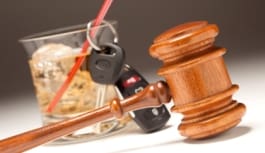 Tennessee treats driving a motor vehicle under the influence of an intoxicant (DUI) as a major offense, says a Nashville DUI attorney, and its law enforcement agents investigate all suspected incidents thoroughly for all available evidence. In their investigations, state and local police first interrogate all suspects before they administer field tests for conclusive evidence.
Tennessee treats driving a motor vehicle under the influence of an intoxicant (DUI) as a major offense, says a Nashville DUI attorney, and its law enforcement agents investigate all suspected incidents thoroughly for all available evidence. In their investigations, state and local police first interrogate all suspects before they administer field tests for conclusive evidence.
The interrogation itself is in effect a preliminary test that gives the officer an opportunity to look for objective signs of intoxication in the odor of alcohol or in slurred speech.
Justifications for Interrogation
One reason for interrogating the suspect before testing for sobriety is to determine whether any pre-existing physical impairments preclude use of particular field tests. For example, field sobriety tests of the ability to balance on one leg would not be appropriate for a suspect with infirm or injured knees.
Our Nashville DUI attorney adds that by asking them for the date and time, an interrogation also can reveal whether suspects suffer from any mental impairment from alcohol or whether they can respond rationally with coherence and orientation to time and place. Asking whether they can say why the police stopped them has the same purpose.
Divided Attention Tests
Interrogation before field sobriety testing assesses the suspect’s divided attention ability. Divided attention requires the brain to perform two or more tasks at the same time. Under the influence of alcohol, the tasks become more difficult. Divided attention tasks measure the ability to perform mental and physical multitasking necessary to operate an automobile safely.
Several field sobriety tests divide attention because they require completion of two or more tasks at the same time:
- The walk-and-turn test requires the suspect to perform a difficult physical task while listening to and demonstrating comprehension of compound instructions.
- The one-leg stand test requires the subject to balance on one leg while counting aloud in thousands.
Two different field sobriety tests may combine as in these examples:
- A count-aloud test may combine with touching of the thumb to the fingertips in a finger-count test.
- Walking a straight line may combine with touching the heel to the toes in a walk-and-turn test.
There are also three types of interrogation that intend to divide attention:
- Asking for two things at the same time, both a driver’s license and the vehicle registration, for example.
- Asking questions to interrupt or distract.
- Asking unusual questions.
Consult a Nashville DUI Attorney
Anyone stopped for, arrested for, or charged with DUI should contact our Nashville DUI attorney Brent Horst as soon as possible to discuss the facts of the case with professional counsel skilled and experienced at handling drunk-driving cases. The governing law is complex, the prosecutors practice a zero-tolerance policy, and the courts are not reluctant to order severe sentences. The advice and advocacy of a Nashville DUI attorney are indispensable to every defendant. Call today to make an appointment.

 A great deal of media attention is paid to the broad legal concepts associated with searches and seizures, including what should and should not happen when a motorist is pulled over by a law enforcement official. In addition, search and seizure and law enforcement motorist stops are featured fairly prominently in films and on television. Despite the ubiquitous nature of car stops and search related information, a great deal of what is presented in these forums is not necessarily factually correct. A
A great deal of media attention is paid to the broad legal concepts associated with searches and seizures, including what should and should not happen when a motorist is pulled over by a law enforcement official. In addition, search and seizure and law enforcement motorist stops are featured fairly prominently in films and on television. Despite the ubiquitous nature of car stops and search related information, a great deal of what is presented in these forums is not necessarily factually correct. A  Nashville criminal lawyer Brent Horst has represented clients who are charged with drug offenses such as
Nashville criminal lawyer Brent Horst has represented clients who are charged with drug offenses such as  If you have been accused of driving under the influence, a Nashville DUI attorney may be able to help ensure that your rights are protected. The 15-minute observation period for a
If you have been accused of driving under the influence, a Nashville DUI attorney may be able to help ensure that your rights are protected. The 15-minute observation period for a  As your Nashville criminal defense lawyer will inform you, an adult who contributes to the delinquency of a minor can be charged with a
As your Nashville criminal defense lawyer will inform you, an adult who contributes to the delinquency of a minor can be charged with a  A Nashville domestic violence lawyer can discuss the ramifications of being convicted of a crime involving
A Nashville domestic violence lawyer can discuss the ramifications of being convicted of a crime involving 
 If you or a loved one are facing criminal charges, it’s important to have a knowledgeable, compassionate Nashville criminal attorney in your corner. Although every case is different, this article covers some basic information regarding warrants.
If you or a loved one are facing criminal charges, it’s important to have a knowledgeable, compassionate Nashville criminal attorney in your corner. Although every case is different, this article covers some basic information regarding warrants.